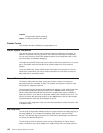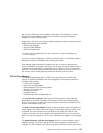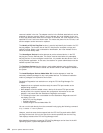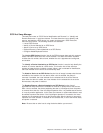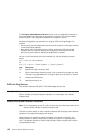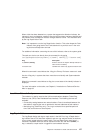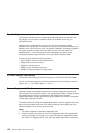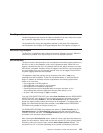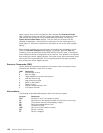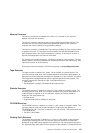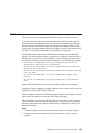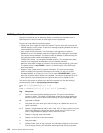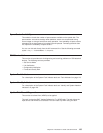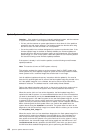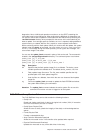speed, memory size, and I/O configuration. After choosing the Extended Exercise
option, additional menus, pop-ups and prompts may appear for each resource. Please
read any text and carefully fill out any prompts before committing. Following, the
System Exerciser Main Menu displays. From this menu the exercisers can be
activated through option 1 where they will continuously run until halted (option 2) or
exited (option x). See also the help text for information on how to use other available
options.
When the task completes any errors that were encountered are displayed for review.
Finally, an Exerciser Complete popup displays. To continue, press the Enter key.
Following, you will be taken back to the TASK SELECTION LIST menu. If miscompare
errors were encountered, run diagnostics on the resource. If the problem is not reported
then contact your service support structure. If any other errors were encountered, select
and run the Error Log Analysis task. If Error Log Analysis does not report a problem
then contact your service support structure.
Exerciser Commands (CMD)
Use the following commands as needed in the exerciser menus and reports. Not all
commands are available in each menu or report.
CMD Description
a Acknowledge an error
b Back one page
c Toggle between cycle count and last error
e View the AIX error log
f Page forward one page
q Return to Main Menu
r Refresh screen
s Enable or disable beep on error
x Exit system exerciser
Abbreviations
The following list describes abbreviations used in the exerciser reports.
Acronym Description
COE Continue on error (use number to select).
CP Device has run the specified number of cycles and is not running.
DD The exerciser has been terminated by a signal.
ER Device has stopped with an error.
HG The device is hung.
HOE Halt on error (use number to select).
RN Device is running.
ST Device is stopped.
130 Eserver pSeries 690 User’s Guide



